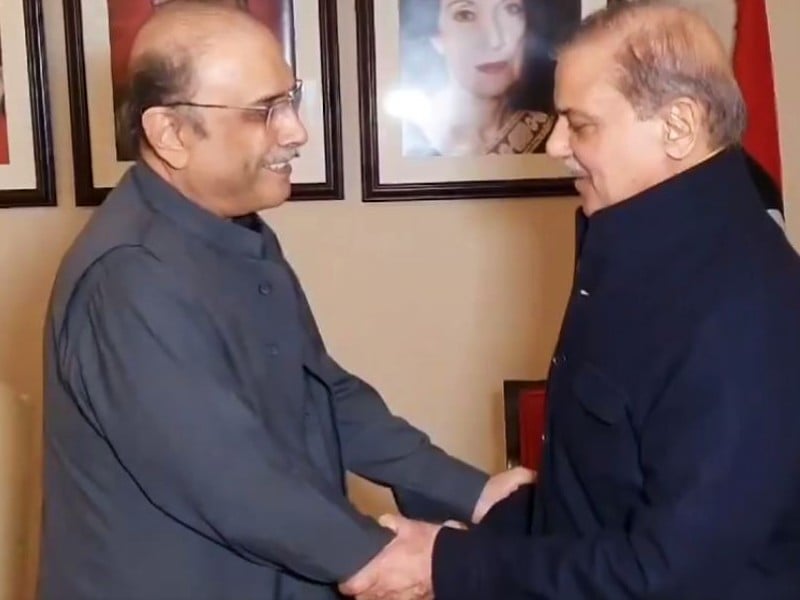Leadership from the Pakistan Muslim League-Nawaz (PML-N) and Pakistan Peoples Party (PPP) convened a significant meeting in Lahore, where elders from both parties reached a fundamental agreement to cooperate for the stability of Pakistan post-general elections.
This pivotal understanding emerged during a high-level gathering at Lahore’s Bilawal House, attended by prominent figures including PPP President Asif Ali Zardari, PPP Chairman Bilawal Bhutto-Zardari, and former Prime Minister Muhammad Shehbaz Sharif of the PML-N. A joint statement released after the meeting highlighted the commitment to prioritizing the nation’s interests above all else, fostering a cordial atmosphere for discussions.
The leaders engaged in substantive conversations regarding the current political landscape and the necessity of collaborative efforts for the nation’s advancement. They emphasized the importance of establishing a framework for sustained political cooperation between the PML-N and PPP, aimed at addressing challenges and promoting progress.
READ MORE: Apple Investigates Touchscreen Problems on Certain Watch Series 9 and Ultra 2 Models
Key topics included assessing Pakistan’s situation, strategizing for the future, and exchanging recommendations to enhance stability and development. Both parties reiterated their dedication to steering Pakistan towards prosperity, emphasizing their commitment to fulfilling the aspirations of the people.
As a concrete step towards further collaboration, PML-N committed to presenting suggestions to the Central Executive Committee (CEC), showcasing their willingness to contribute actively to enhancing political cohesion. The PML-N delegation comprised esteemed members, indicating the depth of the party’s engagement in political decision-making.
Additionally, the PML-N held a meeting with MQM-P, where an agreement in principle on working together towards forming the next government was stated, though later disputed by MQM-P Convener Khalid Maqbool Siddiqui.
In the aftermath of the recent general elections, PML-N leader Nawaz Sharif expressed optimism about building a coalition government, despite challenges indicated by the Election Commission of Pakistan’s dashboard.
According to the final election results, independent candidates, many aligned with Pakistan Tehreek-e-Insaf, secured a significant number of seats in the National Assembly, raising questions about PML-N’s ability to secure a majority.
In summary, the meeting between PML-N and PPP signifies a potential shift in political dynamics, with a focus on collaboration for Pakistan’s stability and progress in the post-election landscape.




